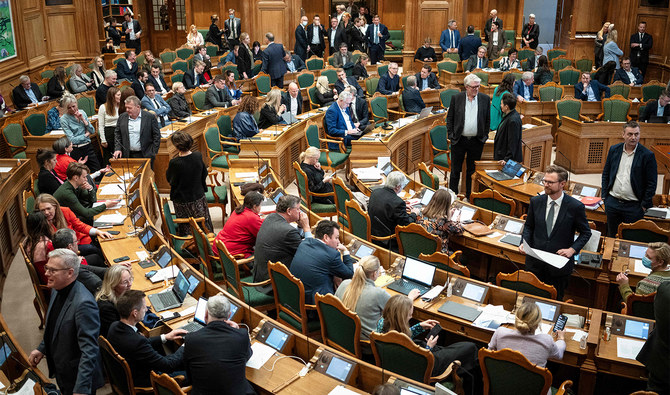ISLAMABAD: Pakistani Foreign Minister Jalil Abbas Jilani has said it was a “prudent decision” by Denmark's parliament to pass a law this week making it illegal to burn the Qur’an in public places.
Denmark and Sweden experienced a series of public protests this year where anti-Islam activists burned or otherwise damaged copies of the Qur’an, triggering demands that the Nordic governments ban the practice. Over 500 demonstrations that included burnings of the Qur’an or flags have been registered since July, according to Denmark’s justice ministry.
“A prudent decision on the part of the Danish Parliament. Hope other European countries follow suit and pass similar legislation,” Jilani said on X on Thursday night, commenting on the new law. “Desecration of holy books of any faith is against the tenets of all religions, even under the guise of freedom of speech.”
Thursday’s vote on the law followed a five hour debate in parliament and 94 members voted in favour, 77 against.
Breaking the new law will be punishable by fines or up to two years in prison.
Denmark has sought to strike a balance between constitutionally protected freedom of speech, including the right to criticize religion, and national security amid fears that Qur’an burnings would trigger attacks by militants. But domestic critics in Sweden and Denmark have argued that any limitations on criticizing religion, including by burning Qur’an, undermine hard-fought liberal freedoms in the region.
Sweden is also considering how to prevent burning of the Qur’an but is looking at whether police should factor in national security when deciding on protest applications rather than a ban.

















